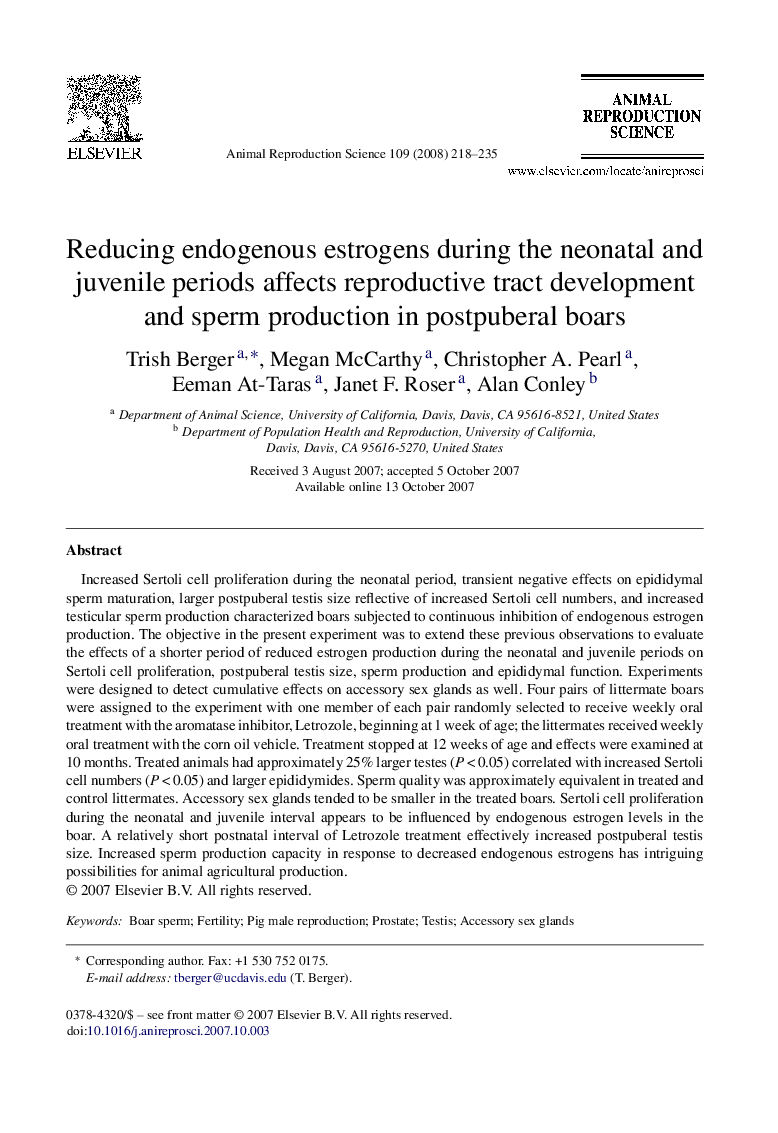| Article ID | Journal | Published Year | Pages | File Type |
|---|---|---|---|---|
| 2074378 | Animal Reproduction Science | 2008 | 18 Pages |
Increased Sertoli cell proliferation during the neonatal period, transient negative effects on epididymal sperm maturation, larger postpuberal testis size reflective of increased Sertoli cell numbers, and increased testicular sperm production characterized boars subjected to continuous inhibition of endogenous estrogen production. The objective in the present experiment was to extend these previous observations to evaluate the effects of a shorter period of reduced estrogen production during the neonatal and juvenile periods on Sertoli cell proliferation, postpuberal testis size, sperm production and epididymal function. Experiments were designed to detect cumulative effects on accessory sex glands as well. Four pairs of littermate boars were assigned to the experiment with one member of each pair randomly selected to receive weekly oral treatment with the aromatase inhibitor, Letrozole, beginning at 1 week of age; the littermates received weekly oral treatment with the corn oil vehicle. Treatment stopped at 12 weeks of age and effects were examined at 10 months. Treated animals had approximately 25% larger testes (P < 0.05) correlated with increased Sertoli cell numbers (P < 0.05) and larger epididymides. Sperm quality was approximately equivalent in treated and control littermates. Accessory sex glands tended to be smaller in the treated boars. Sertoli cell proliferation during the neonatal and juvenile interval appears to be influenced by endogenous estrogen levels in the boar. A relatively short postnatal interval of Letrozole treatment effectively increased postpuberal testis size. Increased sperm production capacity in response to decreased endogenous estrogens has intriguing possibilities for animal agricultural production.
